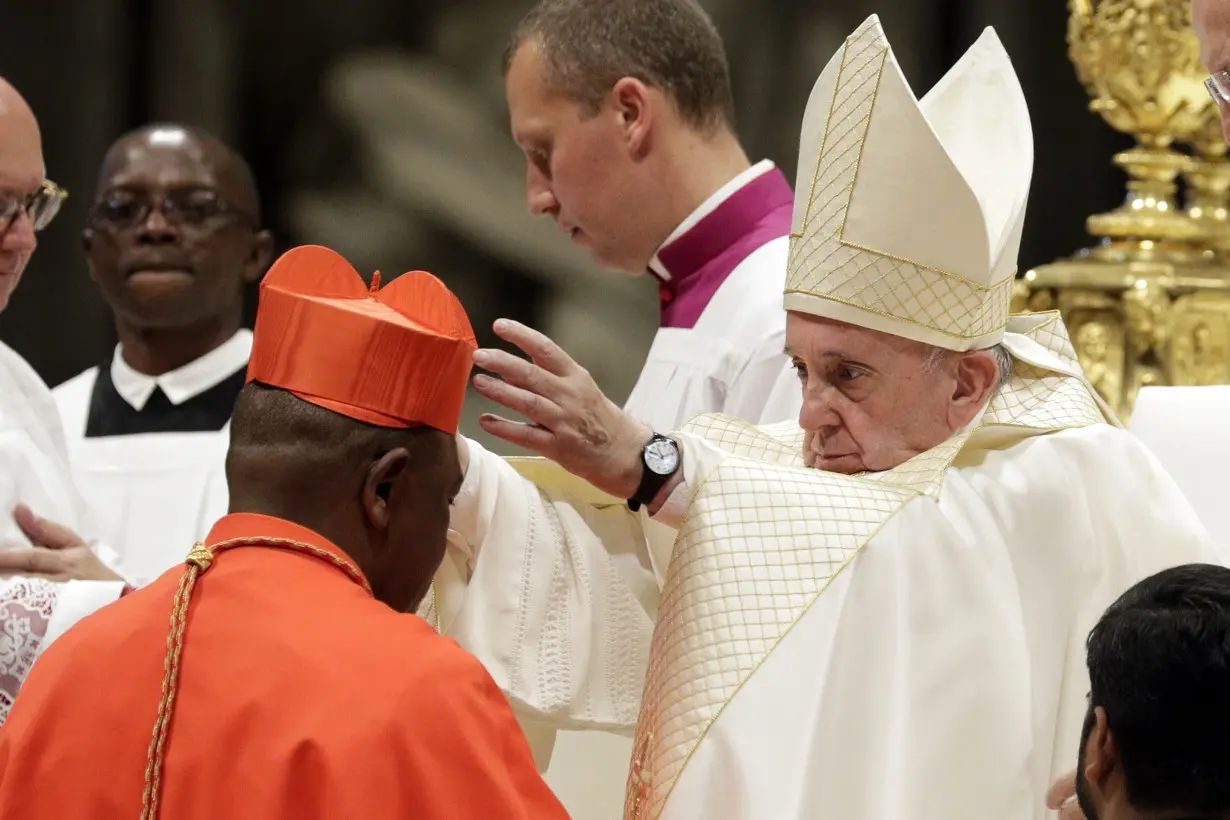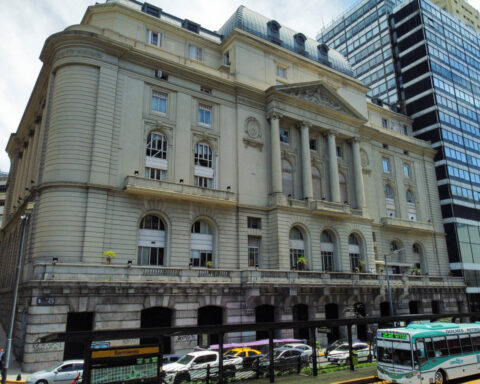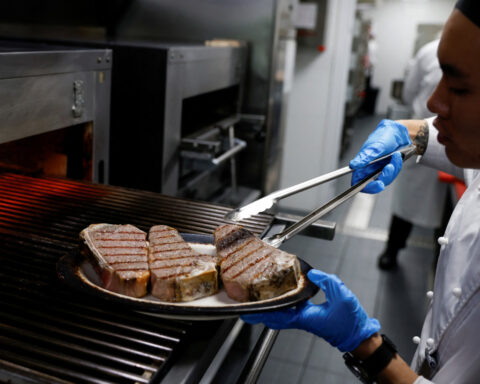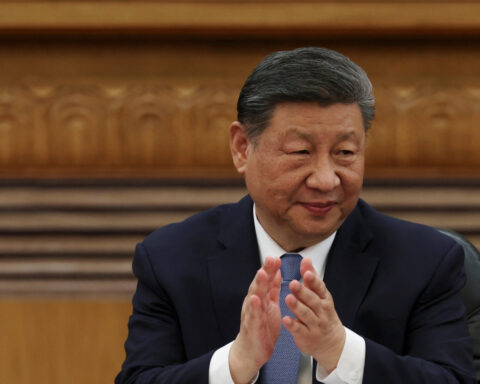VATICAN CITY (AP) — In the greatest rebuke yet to Pope Francis, the Catholic bishops of Africa and Madagascar issued a unified statement Thursday refusing to follow his declaration allowing priests to offer blessings to same-sex couples and asserting that such unions are “contrary to the will of God.”
The statement, signed by Congolese Cardinal Fridolin Ambongo on behalf of the symposium of African national bishops conferences, marked the closest thing to a continent-wide dissent from the declaration Francis approved Dec. 18 allowing priests to offer such blessings.
That declaration from the Dicastery for the Doctrine of the Faith has sent shock waves through the Catholic Church, thrilling LGBTQ+ Catholics as a concrete sign of Francis’ message of welcome but alarming conservatives who fear core doctrines of the church are being ignored or violated.
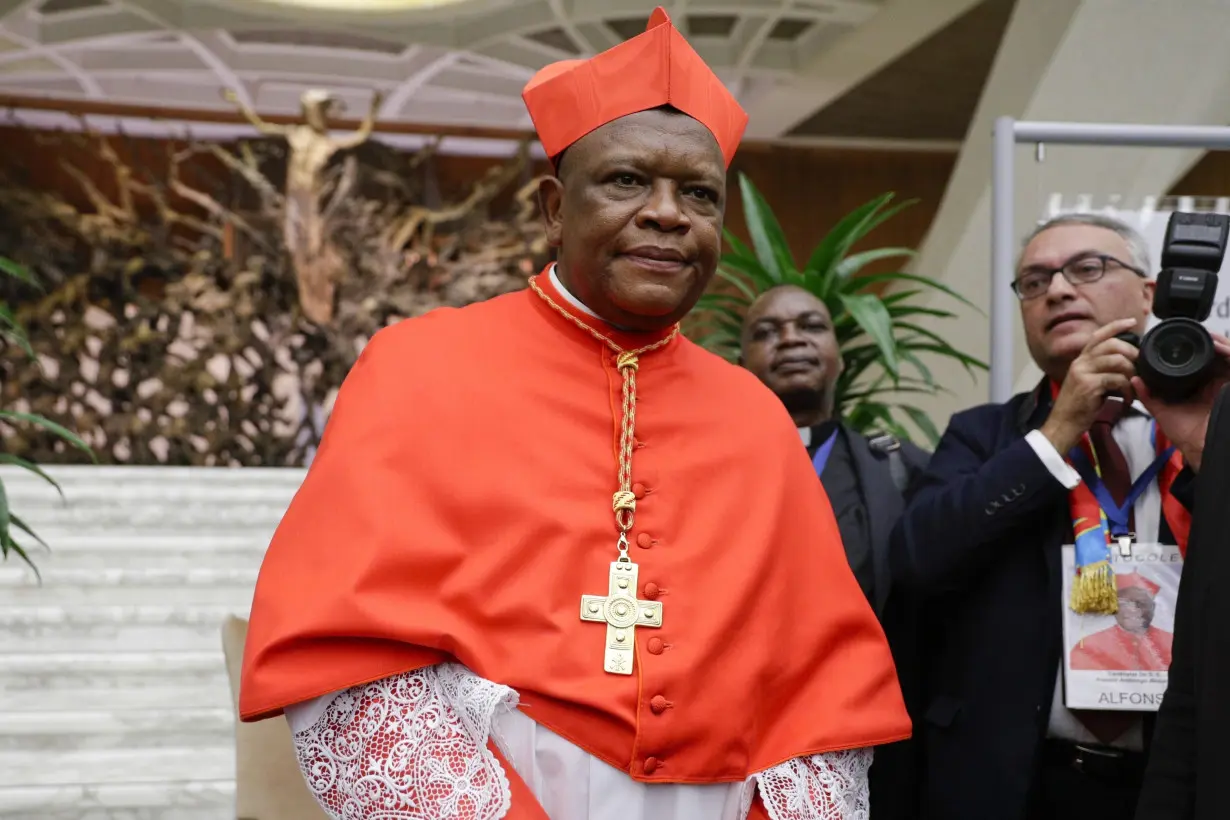
The controversy has deepened a growing chasm between Francis’ progressive, reform-minded papacy and the conservative church in much of the world, especially Africa, where the number of Catholics is growing at a faster rate than anywhere else.
The Vatican declaration restated traditional church teaching that marriage is a lifelong union between a man and woman. But it allowed priests to offer spontaneous, non-liturgical blessings to same-sex couples seeking God’s grace in their lives, provided such blessings aren’t confused with the rites and rituals of a wedding.
In his statement, Ambongo said it wasn’t appropriate for African priests to offer such blessings because of the scandal and confusion it would create. He cited biblical teaching condemning homosexuality as an abomination and the African cultural context, where he asserted that LGBTQ+ unions “are seen as contradictory to cultural norms and intrinsically corrupt.”
“Within the church family of God in Africa, this declaration has caused a shockwave, it has sown misconceptions and unrest in the minds of many lay faithful, consecrated persons and even pastors, and has aroused strong reactions,” he wrote.
While stressing that African bishops remain in communion with Francis, he said they believed such blessings cannot be carried out because “in our context, this would cause confusion and would be in direct contradiction to the cultural ethos of African communities.”
A few weeks ago, Burundi's President Evariste Ndayishimiye said “people of the same sex who marry in this country should be taken to a stadium to be pelted with stones, once discovered.” In a radio broadcast Dec. 29, he asked Burundians living abroad who practice homosexuality “not to return home.”
Ambongo said the symposium statement was a “consolidated summary” of the positions adopted by individual national bishops conferences, and said it had received the “agreement” of Francis and the doctrine office’s new prefect, Cardinal Victor Manuel Fernández.
The botched rollout of the Dec. 18 declaration has heightened conservative criticism of Fernández, whom Francis appointed to the office over the summer. Fernández apparently published the text with little consultation inside the Vatican and no forewarning to bishops in the rest of the world.
Usually, when such sensitive Vatican documents are being prepared, there is an attempt to at least not blindside local church leaders. Often they are released with an accompanying letter or explanatory note published by Vatican Media, and are given to journalists ahead of time under an embargo to ensure the reporting is accurate and thought through.
No such extra documentation or preparation accompanied Fiducia Supplicans, as the text is known, and its rollout was marked by individual bishops and entire national conferences voicing confusion and opposition.
Others have welcomed it. France’s bishops conference, for example, said in a statement Wednesday that the declaration encourages pastors to “generously bless the people who come to them humbly asking for God’s help."
The document “reminds us that those who are not in a position to commit themselves to the sacrament of marriage are not excluded from the love of God or of his church,” the French bishops said.
After its initial publication, Fernández was forced to issue a second explanatory note a few weeks later, insisting there was nothing “heretical” in the document but acknowledging the opposing views. He acknowledged that it may not be applicable to some parts of the world and that further “pastoral reflection” might be necessary.

 Trump has begun another trade war. Here's a timeline of how we got here
Trump has begun another trade war. Here's a timeline of how we got here
 Canada's leader laments lost friendship with US in town that sheltered stranded Americans after 9/11
Canada's leader laments lost friendship with US in town that sheltered stranded Americans after 9/11
 Chinese EV giant BYD's fourth-quarter profit leaps 73%
Chinese EV giant BYD's fourth-quarter profit leaps 73%
 You're an American in another land? Prepare to talk about the why and how of Trump 2.0
You're an American in another land? Prepare to talk about the why and how of Trump 2.0
 Chalk talk: Star power, top teams and No. 5 seeds headline the women's March Madness Sweet 16
Chalk talk: Star power, top teams and No. 5 seeds headline the women's March Madness Sweet 16
 Purdue returns to Sweet 16 with 76-62 win over McNeese in March Madness
Purdue returns to Sweet 16 with 76-62 win over McNeese in March Madness
